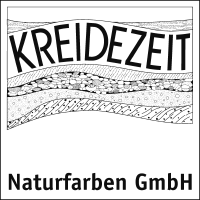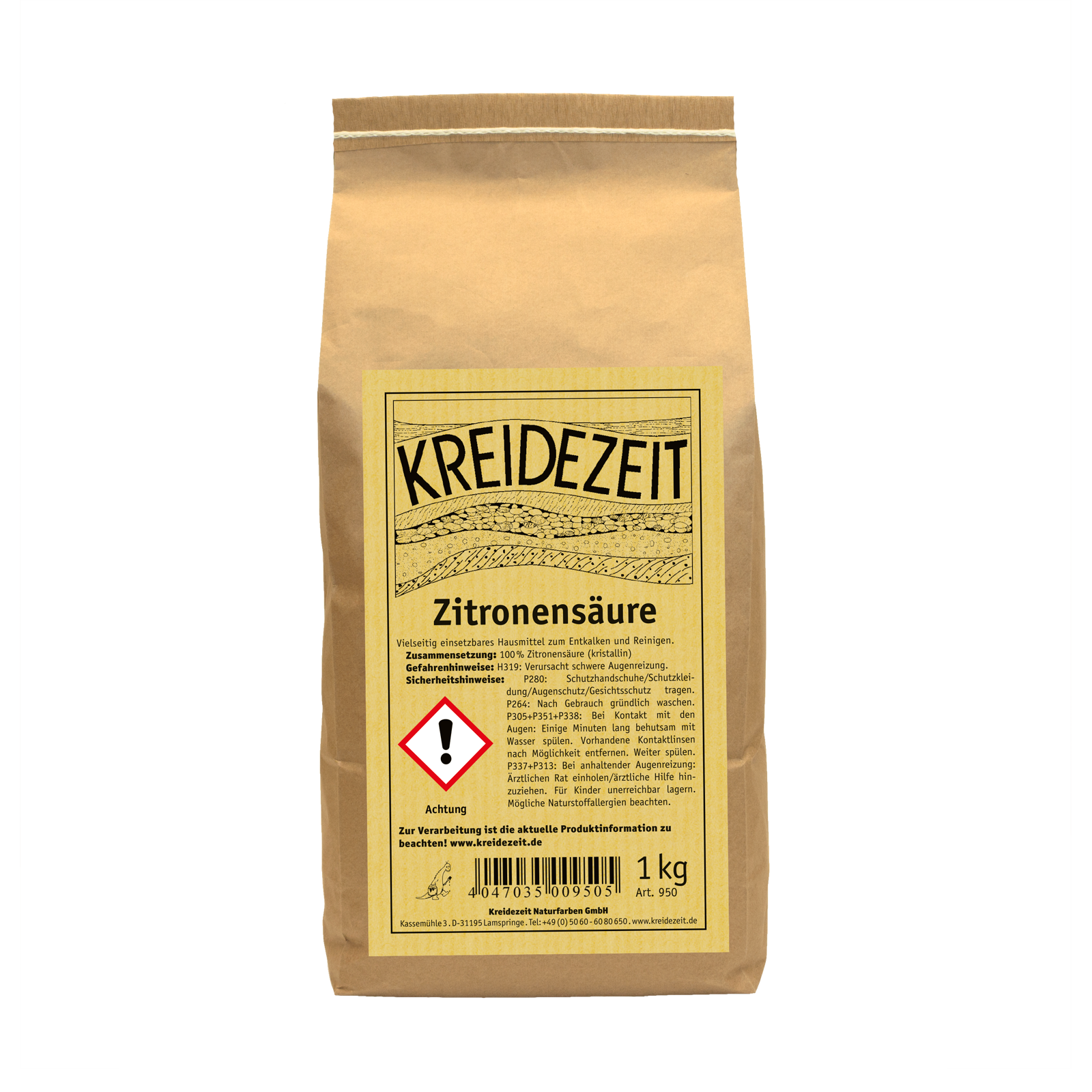Citric acid is one of the most widespread plant acids, and occurs as a metabolic product in all organisms. In the human body, approx. 2g citric acid is formed daily as an intermediate product and reacted again. In the past, citric acid was obtained from lemon juice by reaction with ammonia and sulfuric acid. Today, it is mainly obtained by fermentation (using certain fungi) of sugar solution. They can be used in a wide variety of ways: added to baking powder and cosmetic/pharma products, flavouring in beverages and food. The coffee machine decalcifier, which is usually sold in small packs at high prices, is nothing other than citric acid.
Citric acid is a versatile, especially used as a universal lime remover, inexpensive and non-toxic household remedy, which should not be missing in any household.
Anyone who produces children’s modelling clay himself will no longer want to do without citric acid as a non-toxic and softening additive. The recipe is on the page!
Properties
- cleansing action
- decalcifying
- neutralizes alkaline solutions
- environment-friendly and non-toxic
- inexpensive and productive
- vegan
Full Declaration
100 % Citric acid (crystalline)
When using the product, the complete Product information must be observed.
Decalcifying coffee machines
Dissolve 1 – 2 tablespoons of citric acid in 1 litre of cold water and pour into the machine. Run through approx. 1 cup, switch off the machine and leave to stand for 15-30 minutes.
Allow the rest to run through and rinse twice with clear water.
Descaling of kettles
Dissolve 1 – 2 tablespoons of citric acid in 1 litre of water and fill into the machine. Bring to the boil for a short time and leave to act for 30 minutes. Rinse thoroughly with water.
Descaling the washing machine
Add 6-8 tablespoons of citric acid to the drum and run a 95° program (of course without clothes).
Removal of burnt food from stainless steel pots and pans
Dissolve 2 tablespoons of citric acid in 1 cup of water and boil in the pot or pan for a few minutes. Rinse thoroughly.
Descaling of shower heads, perlators, fittings
Dissolve 2-5 tablespoons of citric acid in 1 litre of warm water. Place parts in this solution and allow to act for a longer period of time, or use it to wipe parts. Rinse thoroughly.
Removal of stains from cups, pots, toothbrush cups, flower vases
Add 1/2-2 tablespoons of citric acid to each vessel, pour over with hot water and leave to act for 30 minutes or longer. Rinse thoroughly.
Cleaning of chrome, stainless steel, ceramic and plastic surfaces
Dissolve 2-5 tablespoons of citric acid in 1 litre of warm water. Wipe the surfaces and rinse them thoroughly.
Removal of lime, cement and gypsum stains
Dissolve 3-6 tablespoons of citric acid in 1 litre of water and wipe surfaces with it. Rinse thoroughly.
Making children’s soft clay:
Using citric acid in children’s modelling clay is a small miracle ingredient. In combination with table salt, this results in a mixture that is “hygroscopic”, i.e. keeps the moisture for a long time. This is particularly important for children’s modelling clay, as it should remain supple for a long time.
The rapid drying and “crumbling” known from simple dough is thus considerably delayed. Test the difference!
This phenomenon has long been known in the butcher’s trade, where a similar mixture is added to sausages to prevent them from running apart due to their high water content; here water is made cuttable, so to speak.
Packaged in airtight freezer bags and stored in a cool place (e.g. refrigerator), the modelling clay has a shelf life of many weeks.
Recipe for children’s soft clay:
Put
500g wheat flour (e.g. type 405)
150g table salt,
3 tablespoons citric acid
20-50g colorful KREIDEZEIT Earth Pigments (e.g. red and yellow ochre, burnt umber, etc.)
in a bowl and mix well.
Bring ½ litres of water to boil, add 5-8 tablespoons of cooking oil and stir into the flour/salt/lemon acid mixture. Then knead thoroughly. Ready! All this takes about a quarter of an hour, is fun and costs almost nothing.
Cleaning the Tools
Immediately after use with water. Treat textiles and brushes with household vinegar if necessary (materials must be tested for compatibility with vinegar).
to dealerlist
If there is no dealer in your region, you can order directly from us under +49 5060 – 6080650 or under info@kreidezeit.de.
Please do not hesitate to contact us if you have any further questions.



